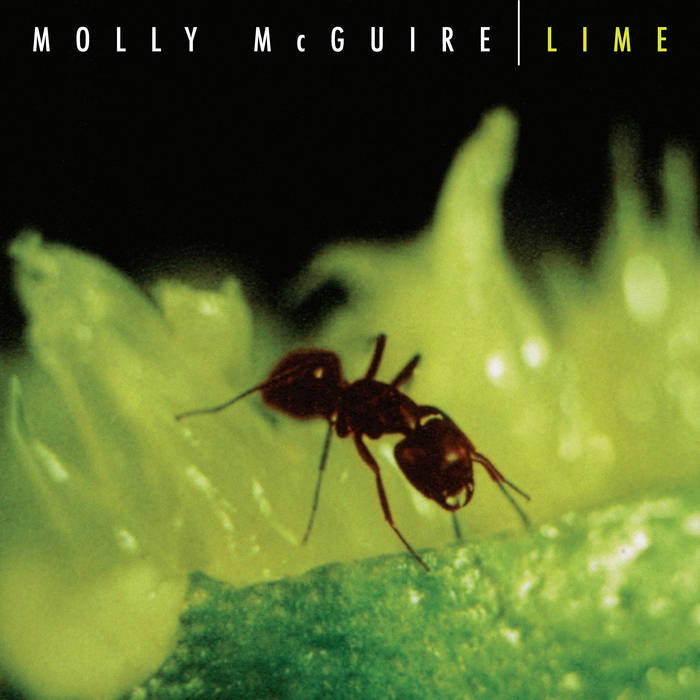The Best of Q3 2022: Part 1
/Not to sound like a guy in a suit, but it’s the end of another “quarter,” and *adjusts tie* that means it’s time to tell you about some of my favorite releases from the last few months. After all, what better way to celebrate the return of fall than getting all sentimental and retrospective?
If you’d like to read about my favorite albums of Q1 and Q2, click here or here. Other than that, read on for some of the best releases of the summer. Part 2 is coming soon because a bunch of great albums dropped in the last few weeks of September, and I’m working on my own time, baby.
Brady - You Sleep While They Watch
Flesh & Bone Records
Sam Boyhtari has had a busy year. Somewhere between nationwide tours with Foxing, Home Is Where, and Infant Island, his band Greet Death managed to drop a phenomenal EP called New Low. Forecasted by a breadcrumb of fantastic singles, this 21-minute collection of songs found the Michigan shoegazers digging a little deeper and going a little darker. Impressive for a group whose last album is literally called “New Hell.” After releasing that EP out into the world and relocating himself to a different part of the Midwest, Boyhtari finally had enough time to dedicate to his Chicago-based heavy rock project simply called Brady.
Self-described on Bandcamp as “the perfect blend of hick shit, innuendo, and a sad story,” it’s hard to think of a better elevator pitch for the group than that. Fans of Greet Death will likely feel at home here, as most of the LP still hovers around a baseline heavy rock sound. What's surprising, however, is just how much Boyhtari has to say and how he decides to present it.
Much like the writing on his other project, songs like “Radon Blues” and “Family Photos” find their structure with a catchy phrase and a compelling instrumental build. Meanwhile, on songs like “Big Future” and “Catherine,” Boyhtari has enough time to get beautifully poetic and surprisingly grounded. The entire album weaves a stark, urgent, but ultimately beautiful portrait of life in 2022. You Sleep While They Watch is an album that is equal parts crushing and compassionate. A necessary balance to strike in the face of our increasingly-oppressive world.
Read our full view of You Sleep While They Watch here.
Carpool - For Nasal Use Only
Acrobat Unstable Records
Can we please talk about Carpool? I’ve been dying to talk about Carpool. For basically the whole summer, I’ve been lucky enough to have For Nasal Use Only on repeat. The EP has soundtracked foggy walks along the Oregon coast, much-needed trips back home, and long flights to visit my girlfriend. Simply put, there’s no collection of songs I would rather have tied to the memories of this past season, and you should be excited at the prospect of attaching these potent tracks to memories of your own this fall.
The latest dispatch from the Rochester emo rockers offers dancy spurts, catchy chants, and even a left-field acoustic number. After an impressive debut album in 2020 with Erotic Nightmare Summer, the band’s latest EP proves that the group’s penchant for immaculate and hooky emo rock was no fluke. Carpool is one of those bands that make it easy to be a fan. The good news is, with Nasal Use finally out and even more exciting things on the horizon, there’s never been a better time to buckle up and join the ride.
Read our review of lead single “Anime Flashbacks” here.
Holy Fawn - Dimensional Bleed
Triple Crown Records
Can you feel that? It’s the push of cold fall air gently cresting over the horizon. This change of seasons brings not just crisp weather but legions of darkened shoegaze to earbuds worldwide. Something about the dead leaves and the colder nights makes the genre feel slightly more appropriate right now than during the throes of a summer heatwave.
Dimensional Bleed is the sophomore album from Holy Fawn and a record that feels tailor-made for this time of year. The release sees the six-piece effortlessly shift and morph between blackened metal, shoegaze, post-rock, and more. There’s a shared murkiness to all these sounds that makes the band feel like a wendigo or a smoke monster, silently gliding behind the listener, waiting for the just right time to unleash their violent fury upon their prey. Songs like “Death is a Relief” and “Lift Your Head” stick out as initial highlights, but really, the whole appeal of this album is slipping in and willingly surrendering yourself to the music for 49 minutes.
NATL PARK SRVC - EP4
Self-released
Where have all the indie rockers gone? It’s a question that’s been on my lips (and apparently everyone else’s) as of late. For the last half-decade, NATL PARK SRVC has been crafting sweeping indie rock songs with an emphasis on early-aughts sounds that Pitchfork would have eaten up back in the day. For the last half-decade, the group has also been refining their bombastic big band style, typically boasting around seven members or more depending on the occasion.
While I loved last year’s The Dance, at times, the full-length left me feeling looped around and overwhelmed over the course of its 48-minute runtime. For that reason alone, the five tracks on EP4 feel like a more concise and compact sample platter of what this band does best. Opener “BLOODY” is a hard-grooving track that builds to an ultra-dancy Frank Ferdinand guitar riff as lead singer Dylan Wotock croons, “why don’t you punch me in the faaaace / why don’t you put me in my plaaace,” stretching the last syllables of each line like a kid playing with silly putty. After a Billy Corgan name drop and a Will Toledo-style monologue, this chorus dovetails with a series of carefree vocalizations for an ornate display that bands like Spoon could only dream of.
From there, lead singles “UP ALL NIGHT” and “VHS” keep the forward momentum with boppy instrumentals featuring the standard mix of guitar, drums, and bass, but accentuated by everything from violin to saxophone and trombone. It’s an ambitious feast for the ears, all spectacularly produced and remarkably clear. I’d be remiss if I didn’t mention “SUMMERSIDE,” an undeniable queer anthem that navigates the muddy and often cliche-ridden waters of figuring out your own sexuality.
The EP’s crown jewel can be found in its closer “PSALM 11:02 PM,” a remorseful and morbid piece with an unshakable Midwest flavor. The song finds Woytcke lamenting the funeral of a close friend, turning their individual grief into a sort of communal outpouring backed by the force of the full band. Mentions of funerals give the song a raw and open-hearted feeling that evokes the honesty of everyone’s favorite Hotelier song. Instead of finding catharsis in a throat-shredding shout, NATL PARK SRVC ascend into a hypnotic repetition of “I still think about it sometimes / I still dream about this sometimes,” which Woytcke sings over a group chant and a winding riff that eventually finds its rest on a charming bed of strings. A beautiful close to a stellar 20-minute release where no second is wasted.
Pool Kids - Pool Kids
Skeletal Lightning
Throughout their self-titled sophomore record, Pool Kids lay out the various phases and emotions of a breakup, then shuffle them around, deconstructing the experience and distilling it into an explosive and cathartic album-length experience. Their first collection of songs as a full band (outside of a half-jokey hardcore double called POOL), Pool Kids balances its emotional heft with impressively technical instrumentation that will stagger even the most jaded math rock fans.
At points, this album feels like an amalgamation of every genre I’ve ever loved growing up: emo, metal, pop-punk, prog, and 2000s alt-rock are all represented, everything wrapped in crystal clear production courtesy of Mike Vernon Davis. It’s a testament to both the band’s musicianship and vision that everything folds in so nicely under the Pool Kids banner.
Pool Kids is unique in that it’s a breakup album in neither the “boo hoo, I’m so sad” territory or the vengeful “fuck you, I will make you pay” camp. At times it has elements of both, but the part that feels true to life is how jumbled and non-linear the process feels. Breakups aren’t all raw heartbreak or revenge fantasies; it’s both of those and much more. Breakups are pity and longing, regret and self-sabotage, moments of reflection and reconnection. Pool Kids recognizes the many facets of emotional turmoil and recomposes them into something anyone can find a piece of themselves in.
Read our review of lead single “That's Physics, Baby” here.
Quinn Cicala - Arkansas
Self-released
Quinn Cicala is back, yee-fuckin-haw. Since 2017, Cicala has quietly been making some of the best alt-country in the whole country. I’ll admit, I first found my way to the musician as a way to ween myself off Pinegrove, and while that may still be a sticky comparison for some, it at least gives you a point of reference for what to expect with this EP. The good news is I eventually grew to love the Cicalaverse on its own merits, and I’d even go as far as to call “24” one of the best songs of all-time. Heavily grounded in the American South, the five songs Quinn Cicala offers up on Arkansas are expectedly pleasant and beautifully compelling. Guided by a folksy twang and breezy instrumentals, these songs unfurl like a sleepy cat in a warm sunbeam. The humid southern air clings to the bones of this release. Whether the band is depicting true love in the heartland or talking about frivolous news publications, it’s easy to find a home within these songs, even if it’s only for a quarter-hour.
Russian Circles - Gnosis
Sargent House
I ran the numbers, and it turns out Russian Circles have been a presence in my life for 16 years. My Russian Circles fandom is officially old enough to drive. Ever since I heard the pummeling guitar of “Death Rides a Horse” back in high school, I’ve been hooked on everything the Chicago trio has put out over the course of their hyper-consistent career. Always a reliable source of instrumental metal riffage, Russian Circles seem locked into a new mode of operating on Gnosis, sounding tighter and heavier than they have in years. Every style and speed of the band is represented here; “Conduit” is a ferocious and gnashing song, while the title track is a slow-simmering black cloud that mounts into a torrential downpour. Regardless of where I’m at in life or what I’m doing, I can always count on Russian Circles to be there, scoring the scene with brutal metal that crushes me in a warm embrace.














